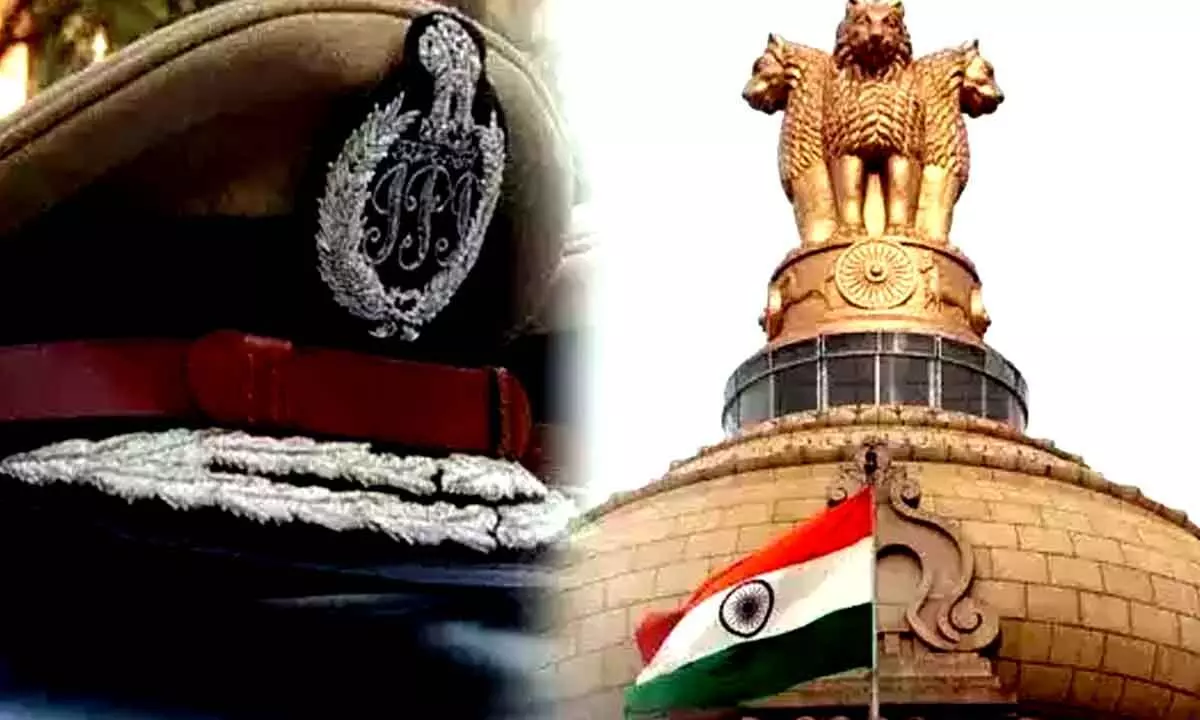All-India Service officers need to serve people not a place

A new trend seems to be developing among the All-India Service officers in the two Telugu States. The IAS and IPS officers have been resisting allocation from Telangana cadre to AP and vice versa.
A new trend seems to be developing among the All-India Service officers in the two Telugu States. The IAS and IPS officers have been resisting allocation from Telangana cadre to AP and vice versa. The DoPT had recently transferred officers like Amrapali Kata, Vakati Karuna, Ronald Ross Vani Prasad, Prashanti (IAS) and IPS officers Anjani Kumar, Abhilesh Bisht and Abhishek Mohanti to report to AP and similarly they directed G Srijana, Shivshankar and Harikiran to report to Telangana.
But these officers do not seem to be willing to accept the DoPT orders on the grounds that their case cannot be treated as per the original guidelines of IAS transfers since at the time of bifurcation of undivided Andhra Pradesh the advisory committee under chairmanship of Pratyush Sinha gave certain recommendations on the allocation of officers of the three services IAS, IPS and IFS and based on it the Union Government finalised the division of officers and notified it on July 18, 2014. Hence, they contend that the DoPT order was unilateral. Now that they are knocking the doors of the High Court on Wednesday one will have to wait and watch.
The IAS aspirants at the time of joining the service opt to serve anywhere in the country “with eyes open”. The Supreme Court in October 21 pointing this issue said that though as aspirants they opt to serve anywhere in the country later they “scramble” for home cadre.
What needs to be noted here is that these AIS officers have been issuing orders for example on teacher transfers and have been insisting that they cannot say “No” and must report immediately at their new place of work. Fine, but when it comes to their services, they use all possible avenues to prevent moving out of their place of work. Why is it so? For an AIS officer who is meant to serve people no place should really matter. In fact, he or she would be remembered forever by the people if they did some good work. There are many such officers who have carved a niche and people still remember them.
Take for example PVRK Prasad who was appointed as the Executive Officer of the Tirumala Tirupati Devasthanam. He is remembered even today for the excellent vision he had to create best of the facilities for devotes and the steps he had taken to promote Hindu culture.
Despite being very senior officers, they never questioned why they were transferred from one place to another. They worked even in remote districts of Andhra and Telangana in undivided Andhra Pradesh and earned a name for themselves. Why does the present genre of officers do not think on those lines? The comments made by the Central Administrative Tribunal on Tuesday while hearing the arguments of the IAS officers who challenged their allocation to AP cadre assume importance. The CAT said people in AP are suffering from floods. Don’t you think you want to serve them? The main objective of having AIS officers was to ensure “national integration” in the country’s top bureaucracy. Is that really happening? The GOI needs to review.
“All-India service officers are supposed to have varied experiences which can be earned when they work in a different state. The officers may not be able to experiment with new things if they work in their own domicile state,” While one must wait for what the High Court would decide, the kind of resistance that is being seen by the AIS officers of AP and Telangana raises several questions and leaves the common man wondering if they are also getting influenced by political or some other considerations?














